Khurram Khan Afridi
Associate Professor, School of Electrical and Computer Engineering
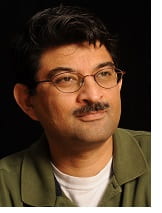 Khurram Afridi is an Associate Professor of Electrical and Computer Engineering at Cornell University. His research interests are in power electronics and energy systems incorporating power electronic controls. A major thrust of his current research is on electric vehicles and their charging infrastructure, with a special focus on the dynamic wireless charging of electric vehicles from the roadway. He is an associate editor of the IEEE Journal of Emerging and Selected Topics in Power Electronics.
Khurram Afridi is an Associate Professor of Electrical and Computer Engineering at Cornell University. His research interests are in power electronics and energy systems incorporating power electronic controls. A major thrust of his current research is on electric vehicles and their charging infrastructure, with a special focus on the dynamic wireless charging of electric vehicles from the roadway. He is an associate editor of the IEEE Journal of Emerging and Selected Topics in Power Electronics.
John D. Albertson
Professor, School of Civil and Environmental Engineering
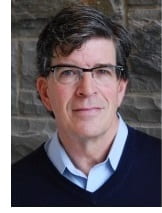 John Albertson is a Professor of Civil and Environmental Engineering at Cornell University. Albertson joined the Cornell faculty in July of 2015 from Duke University where he was department chair of Civil and Environmental Engineering. Albertson’s research is focused on atmospheric turbulent transport, with an emphasis on data-model fusion for impact mitigation. His activity with the Veho Institute surrounds mobile sensing of air quality in urban environments and the general advancement of smart city technologies.
John Albertson is a Professor of Civil and Environmental Engineering at Cornell University. Albertson joined the Cornell faculty in July of 2015 from Duke University where he was department chair of Civil and Environmental Engineering. Albertson’s research is focused on atmospheric turbulent transport, with an emphasis on data-model fusion for impact mitigation. His activity with the Veho Institute surrounds mobile sensing of air quality in urban environments and the general advancement of smart city technologies.
Mark Campbell
John A. Mellowes ’60 Professor in Mechanical Engineering, Sibley School of Mechanical and Aerospace Engineering
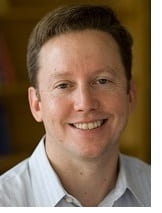 Mark Campbell is a John A. Mellowes ’60 Professor in Mechanical Engineering at Cornell University. He is interested in autonomy for robotics, aircraft, and spacecraft. Research areas include sensor fusion and perception; decentralized estimation and control; human decision modeling and human-robotics interaction; nonlinear and hybrid estimation theory; formation flying spacecraft, and structural dynamics and control. Professor Campbell’s educational areas include control systems, estimation, and space systems with an emphasis on experiential learning projects.
Mark Campbell is a John A. Mellowes ’60 Professor in Mechanical Engineering at Cornell University. He is interested in autonomy for robotics, aircraft, and spacecraft. Research areas include sensor fusion and perception; decentralized estimation and control; human decision modeling and human-robotics interaction; nonlinear and hybrid estimation theory; formation flying spacecraft, and structural dynamics and control. Professor Campbell’s educational areas include control systems, estimation, and space systems with an emphasis on experiential learning projects.
Ricardo A Daziano
Associate Professor, School of Civil and Environmental Engineering
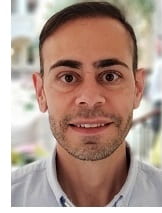 Ricardo A Daziano, Ph.D. in economics, is an associate professor of civil and environmental engineering at Cornell University. Daziano is an expert in modeling economic choices by consumers using advanced simulation-based econometric methods, with empirical research focus on response to vehicle automation and on the determination of willingness to pay for vehicle technology including electrification. He is also interested in the non-market valuation of environmental benefits, energy efficiency, safety gains, and qualitative vehicle features. In terms of methodological contributions, Daziano works on deriving Bayes and frequentist estimators of preference parameters that are flexible enough to recover unobserved heterogeneity and to ensure accurate market share predictions.
Ricardo A Daziano, Ph.D. in economics, is an associate professor of civil and environmental engineering at Cornell University. Daziano is an expert in modeling economic choices by consumers using advanced simulation-based econometric methods, with empirical research focus on response to vehicle automation and on the determination of willingness to pay for vehicle technology including electrification. He is also interested in the non-market valuation of environmental benefits, energy efficiency, safety gains, and qualitative vehicle features. In terms of methodological contributions, Daziano works on deriving Bayes and frequentist estimators of preference parameters that are flexible enough to recover unobserved heterogeneity and to ensure accurate market share predictions.
Peter Frazier
Associate Professor, School of Operations Research and Information Engineering
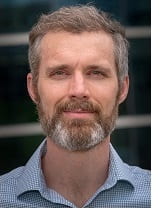 Peter Frazier is an Associate Professor in the School of Operations Research and Information Engineering at Cornell University and a Staff Data Scientist at Uber. His work in operations research and machine learning includes Bayesian Optimization, Simulation, Multi-armed bandits and incentive design for social learning, and materials design, biochemistry, drug discovery, and medicine.
Peter Frazier is an Associate Professor in the School of Operations Research and Information Engineering at Cornell University and a Staff Data Scientist at Uber. His work in operations research and machine learning includes Bayesian Optimization, Simulation, Multi-armed bandits and incentive design for social learning, and materials design, biochemistry, drug discovery, and medicine.
H. Oliver Gao
Professor, School of Civil and Environmental Engineering
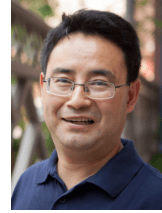 Dr. Gao is a Professor in the graduate fields of Civil and Environmental Engineering (Transportation Systems Engineering), Systems Engineering at Cornell University. He is also the Director of Cornell Systems Engineering, and Center for Transportation, Environment, and Community Health and the Associate Director of the Cornell Program in Infrastructure Policy. His research focuses on transportation systems, environmental energy, and sustainable development.
Dr. Gao is a Professor in the graduate fields of Civil and Environmental Engineering (Transportation Systems Engineering), Systems Engineering at Cornell University. He is also the Director of Cornell Systems Engineering, and Center for Transportation, Environment, and Community Health and the Associate Director of the Cornell Program in Infrastructure Policy. His research focuses on transportation systems, environmental energy, and sustainable development.
Donald Greenberg
Jacob Gould Schurman Professor of Computer Graphics, School of Architecture Art Planning
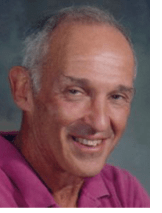 Donald Greenberg, the Jacob Gould Schurman Professor of Computer Graphics, has been researching and teaching in the field of computer graphics since 1966. During the last 15 years, he has been primarily concerned with research advancing the state-of-the-art in computer graphics and with utilizing these techniques as they may be applied to a variety of disciplines. His specialties include real-time realistic image generation, color science, and computer-aided architectural design.
Donald Greenberg, the Jacob Gould Schurman Professor of Computer Graphics, has been researching and teaching in the field of computer graphics since 1966. During the last 15 years, he has been primarily concerned with research advancing the state-of-the-art in computer graphics and with utilizing these techniques as they may be applied to a variety of disciplines. His specialties include real-time realistic image generation, color science, and computer-aided architectural design.
Brian Kirby
Meinig Family Professor of Engineering, Sibley School of Mechanical and Aerospace Engineering
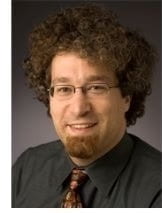 Brian Kirby is the Meinig Family Professor of Engineering in the Department of Mechanical and Aerospace Engineering at Cornell University. He currently directs the Micro/Nanofluidics Laboratory in the Sibley School of Mechanical and Aerospace Engineering at Cornell University. His research interests include Multiphase and Granular Flows, Microfluidics, Micro Nano Systems, Materials Design, and Advanced Manufacturing and Materials.
Brian Kirby is the Meinig Family Professor of Engineering in the Department of Mechanical and Aerospace Engineering at Cornell University. He currently directs the Micro/Nanofluidics Laboratory in the Sibley School of Mechanical and Aerospace Engineering at Cornell University. His research interests include Multiphase and Granular Flows, Microfluidics, Micro Nano Systems, Materials Design, and Advanced Manufacturing and Materials.
Andrea Lodi
Visiting Professor, Jacobs Technion-Cornell Institute
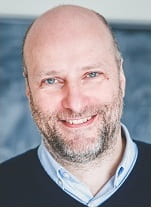 Andrea Lodi will be a Visiting Professor at the Jacobs Technion-Cornell Institute at Cornell Tech and the Technion. He received his PhD in System Engineering from the University of Bologna in 2000 and he was a Herman Goldstine Fellow at the IBM Mathematical Sciences Department, NY in 2005–2006. His main research interests are in Mixed-Integer Linear and Nonlinear Programming and Data Science and his work has received several recognitions including the IBM and Google faculty awards. He is the author of more than 100 publications in the top journals of the field of Mathematical Optimization and Data Science.
Andrea Lodi will be a Visiting Professor at the Jacobs Technion-Cornell Institute at Cornell Tech and the Technion. He received his PhD in System Engineering from the University of Bologna in 2000 and he was a Herman Goldstine Fellow at the IBM Mathematical Sciences Department, NY in 2005–2006. His main research interests are in Mixed-Integer Linear and Nonlinear Programming and Data Science and his work has received several recognitions including the IBM and Google faculty awards. He is the author of more than 100 publications in the top journals of the field of Mathematical Optimization and Data Science.
Helen Nissenbaum
Professor, School of Information Science
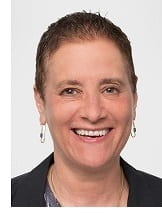 Helen Nissenbaum is a Professor at Cornell Tech and in the Information Science Department at Cornell University. She is also Director of the Digital Life Initiative, which was launched in 2017 at Cornell Tech to explore societal perspectives surrounding the development and application of digital technology, focusing on ethics, policy, politics, and quality of life. Her own research takes an ethical perspective on policy, law, science, and engineering relating to information technology, computing, digital media, and data science. Topics have included privacy, trust, accountability, security, and values in technology design.
Helen Nissenbaum is a Professor at Cornell Tech and in the Information Science Department at Cornell University. She is also Director of the Digital Life Initiative, which was launched in 2017 at Cornell Tech to explore societal perspectives surrounding the development and application of digital technology, focusing on ethics, policy, politics, and quality of life. Her own research takes an ethical perspective on policy, law, science, and engineering relating to information technology, computing, digital media, and data science. Topics have included privacy, trust, accountability, security, and values in technology design.
Jamol Pender
Assistant Professor, School of Operations Research and Information Engineering
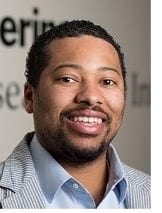 Jamol Pender is an Assistant Professor in the School of Operations Research and Information Engineering at Cornell University. His research interests include queueing theory, applied probability, Markov processes, control theory, and mathematical finance. His activity with the Veho Institute surrounds Real-Time Operation and Look-Ahead Assistance in vehicles.
Jamol Pender is an Assistant Professor in the School of Operations Research and Information Engineering at Cornell University. His research interests include queueing theory, applied probability, Markov processes, control theory, and mathematical finance. His activity with the Veho Institute surrounds Real-Time Operation and Look-Ahead Assistance in vehicles.
Clifford R Pollock
Ilda And Charles Lee Professor of Engineering, School of Electrical and Computer Engineering
 Cilfford Pollock is the Idla and Lee Professor of Engineering at the Department of Electrical and Computer Engineering at Cornell University. His major research focus has been in tunable lasers, the generation of ultrashort optical pulses, and the design of optical waveguide devices. His current research is directed at femtosecond-duration pulses of tunable radiation, novel infrared laser sources, and LED lighting. He served as director of the School of Electrical and Computer Engineering from 2014-2018 and from 2000-2007, and spent a lot of time working on school issues such as hiring good faculty and identifying strategic directions. He is a topical editor for Optics Letters, a leading journal for laser research.
Cilfford Pollock is the Idla and Lee Professor of Engineering at the Department of Electrical and Computer Engineering at Cornell University. His major research focus has been in tunable lasers, the generation of ultrashort optical pulses, and the design of optical waveguide devices. His current research is directed at femtosecond-duration pulses of tunable radiation, novel infrared laser sources, and LED lighting. He served as director of the School of Electrical and Computer Engineering from 2014-2018 and from 2000-2007, and spent a lot of time working on school issues such as hiring good faculty and identifying strategic directions. He is a topical editor for Optics Letters, a leading journal for laser research.
Patrick Michael Reed
Joseph C. Ford Professor of Engineering, School of Civil and Environmental Engineering
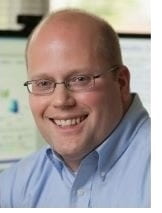 Patrick Reed is a Joseph C. Ford Professor of Civil and Environmental Engineering at Cornell University. His primary research interests relate to sustainable water management given conflicting demands from renewable energy systems, ecosystem services, expanding populations, and climate change. The tools developed in Dr. Reed’s group bridge sustainability science, risk management, economics, multiobjective decision making, operations research, computer science, and high-performance computing.
Patrick Reed is a Joseph C. Ford Professor of Civil and Environmental Engineering at Cornell University. His primary research interests relate to sustainable water management given conflicting demands from renewable energy systems, ecosystem services, expanding populations, and climate change. The tools developed in Dr. Reed’s group bridge sustainability science, risk management, economics, multiobjective decision making, operations research, computer science, and high-performance computing.
Samitha Samaranayake
Assistant Professor, School of Civil and Environmental Engineering
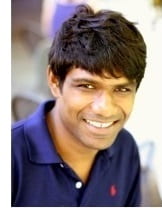 Samitha Samaranayake is an Assistant Professor in the School of Civil and Environmental Engineering and a Graduate Field Faculty in the School of Operations Research and Information Engineering, the Center for Applied Math and the Systems Engineering Program at Cornell. His research interests are in the modeling, analysis, and control of networked urban infrastructure systems with a focus on transportation networks. He works primarily on problems related to vehicle routing with applications in route planning with reliability guarantees, dynamic traffic assignment and control, and ride-sharing systems and is particularly interested in developing computationally efficient solution techniques and algorithms that enable practical applications.
Samitha Samaranayake is an Assistant Professor in the School of Civil and Environmental Engineering and a Graduate Field Faculty in the School of Operations Research and Information Engineering, the Center for Applied Math and the Systems Engineering Program at Cornell. His research interests are in the modeling, analysis, and control of networked urban infrastructure systems with a focus on transportation networks. He works primarily on problems related to vehicle routing with applications in route planning with reliability guarantees, dynamic traffic assignment and control, and ride-sharing systems and is particularly interested in developing computationally efficient solution techniques and algorithms that enable practical applications.
David B. Shmoys
Laibe/Acheson Professor of Business Management & Leadership Studies, School of Operations Research and Information Engineering
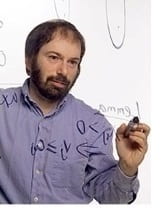 David B. Shmoys is a Laibe/Acheson Professor of Business Management and Leadership Studies in the School of Operations Research and Information Engineering at Cornell University. The primary focus of his research is on the design and analysis of efficient algorithms for discrete optimization problems, and in particular, on approximation algorithms for NP-hard and other computationally intractable problems. Linear programming relaxations have played a fundamental role in obtaining good solutions to hard optimization problems, and he continues to study their application to a range of problems in clustering, sequencing, and scheduling, and inventory problems, in both deterministic and stochastic optimization settings. In addition to studying these problems with a theoretical lens, he has been involved in the practical application of these techniques in settings ranging from genomics to medical aircraft scheduling to the long-term planning for the preservation of the red-cockaded woodpecker to the operational logistics and design of bike-sharing systems.
David B. Shmoys is a Laibe/Acheson Professor of Business Management and Leadership Studies in the School of Operations Research and Information Engineering at Cornell University. The primary focus of his research is on the design and analysis of efficient algorithms for discrete optimization problems, and in particular, on approximation algorithms for NP-hard and other computationally intractable problems. Linear programming relaxations have played a fundamental role in obtaining good solutions to hard optimization problems, and he continues to study their application to a range of problems in clustering, sequencing, and scheduling, and inventory problems, in both deterministic and stochastic optimization settings. In addition to studying these problems with a theoretical lens, he has been involved in the practical application of these techniques in settings ranging from genomics to medical aircraft scheduling to the long-term planning for the preservation of the red-cockaded woodpecker to the operational logistics and design of bike-sharing systems.
Sadaf Sobhani
Assistant Professor, Sibley School of Mechanical and Aerospace Engineering
 Sadaf Sobhani is an Assistant Professor in the Sibley School of Mechanical and Aerospace Engineering at Cornell University. Her research activities focus on developing high-efficiency, low-emission, and robust thermal management and energy conversion systems. She explores rigorous pathways to apply topology optimization techniques combined with additive manufacturing and non-intrusive diagnostics to design, fabricate and analyze tailored structures in combustion, electrochemistry, and other complex flow systems. Previously, Dr. Sobhani worked as a research associate at the NASA Ames Research Center and the United Nations Foundation, Energy and Climate Department. She received her doctorate degree in mechanical engineering from Stanford University.
Sadaf Sobhani is an Assistant Professor in the Sibley School of Mechanical and Aerospace Engineering at Cornell University. Her research activities focus on developing high-efficiency, low-emission, and robust thermal management and energy conversion systems. She explores rigorous pathways to apply topology optimization techniques combined with additive manufacturing and non-intrusive diagnostics to design, fabricate and analyze tailored structures in combustion, electrochemistry, and other complex flow systems. Previously, Dr. Sobhani worked as a research associate at the NASA Ames Research Center and the United Nations Foundation, Energy and Climate Department. She received her doctorate degree in mechanical engineering from Stanford University.
Michael Tomlan
Professor, Director of Historic Preservation Planning, School of Architecture Art Planning
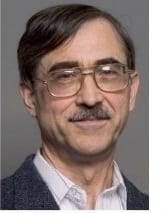 Michael A. Tomlan directs the graduate program in historic preservation planning. He teaches classes that deal with documentation techniques, fieldwork, preservation practice and urban change, the relationships between museums and the public, and preservation, planning, and religion. Tomlan is also involved in finance and economics. He serves as a member of the admissions committee of the Baker Program in Real Estate, is the faculty editor of the Cornell Real Estate Review, and offers courses in international cases and competitions.
Michael A. Tomlan directs the graduate program in historic preservation planning. He teaches classes that deal with documentation techniques, fieldwork, preservation practice and urban change, the relationships between museums and the public, and preservation, planning, and religion. Tomlan is also involved in finance and economics. He serves as a member of the admissions committee of the Baker Program in Real Estate, is the faculty editor of the Cornell Real Estate Review, and offers courses in international cases and competitions.
Alexander Vladimirsky
Professor, Department of Mathematics
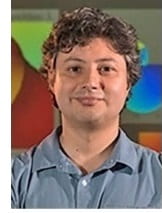 Alex Vladimirsky is an applied mathematician at Cornell University, whose interests span nonlinear PDEs, dynamical systems, optimal control & differential games, numerical analysis, and algorithms on graphs. His past and current projects include efficient methods for robotic navigation, macro-scale models of pedestrian interactions, surveillance-evasion games under uncertainty, mean field games, uncertainty quantification in piecewise-deterministic processes, multiobjective & randomly-terminated optimal control, seismic imaging, dimensional reduction in turbulent combustion, optimization of cancer therapies, numerical methods for Hamilton-Jacobi PDEs, and approximation of invariant manifolds.
Alex Vladimirsky is an applied mathematician at Cornell University, whose interests span nonlinear PDEs, dynamical systems, optimal control & differential games, numerical analysis, and algorithms on graphs. His past and current projects include efficient methods for robotic navigation, macro-scale models of pedestrian interactions, surveillance-evasion games under uncertainty, mean field games, uncertainty quantification in piecewise-deterministic processes, multiobjective & randomly-terminated optimal control, seismic imaging, dimensional reduction in turbulent combustion, optimization of cancer therapies, numerical methods for Hamilton-Jacobi PDEs, and approximation of invariant manifolds.
Andrea Stevenson Won
Assistant Professor, Department of Communication
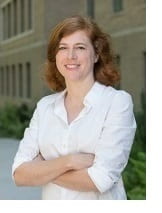 Won’s research focuses on how virtual experiences change people’s perceptions; how nonverbal behavior by humans and autonomous agents as rendered in virtual environments affects collaboration and teamwork, and how virtual reality simulations can be used to explore the impacts and potential applications of emerging technologies.
Won’s research focuses on how virtual experiences change people’s perceptions; how nonverbal behavior by humans and autonomous agents as rendered in virtual environments affects collaboration and teamwork, and how virtual reality simulations can be used to explore the impacts and potential applications of emerging technologies.